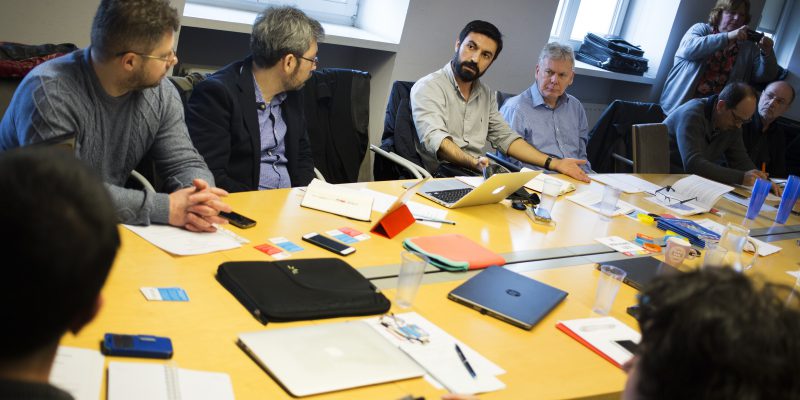Organising and collective bargaining focus for EFJ Freelance Expert Group

“In each company we need to first deal with the staff workers, and find out about their main challenges at work. We need to map the company, the sector and then also map the situation of staff , freelances, agency and all workers “, said Erkan Ersoy, Director of Organizing in UNI SCORE (Strategic Campaigns, Organising, Research + Education) who was invited to the Freelance Expert Group meeting to discuss how to apply the UNI organising strategy at company level to freelance journalists. Other tips include:
- Choose the most ethical media company to start with;
- Map: find out about pay and terms of conditions of all journalists working for this company, independent of their employment contract;
- Bring together shop stewards to discuss main issues to tackle;
- Create issue specific, short and precise campaign material with the message: we will fix it, not management!
- Engage members and non-members and propose collective action at the end.
Based on a common project on Reaching out to atypical workers, the meeting also discussed with Dearbhal Murphy from the International Federation of Actors (FIA) and Johannes Studinger from UNI-MEI a future project on organising freelances and new work forms and ways of overcoming legal obstacles to collective bargaining for all workers.
Jeremy Dear, IFJ Deputy General Secretary outlined the IFJ Insurance scheme which also covers freelances. There will be a webinar on 9 May to explain more in detail what it covers.
Tom Gibson, EU representative of Committee to Protect Journalists, outlined the latest CPJ’s Special Report published yesterday The Best Defense: Threats to journalists’ safety demand fresh approach, which also covers freelances safety, very often at the frontline.
Tom Gibson from @pressfreedom outlines soon to publish CPJ Freelance survey on safety issues to Freelance Expert Group pic.twitter.com/vggah21alV
— EFJ (@EFJEUROPE) February 20, 2017
National developments including lowering fees, in particular of photojournalists, great imbalance between male-female fees, union activities etc.were also on the agenda of the FREG meeting on 20 February.
The elected co-chairs are Anette Selmer-Andresen from Norway and John Toner from the United Kingdom.
The next FREG meeting will take place in Minsk, Belarus on 16 November.
Photo credit: Anette Selmer-Andresen






